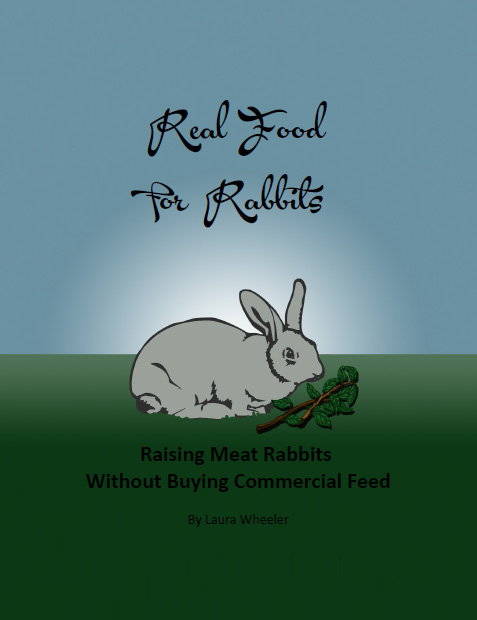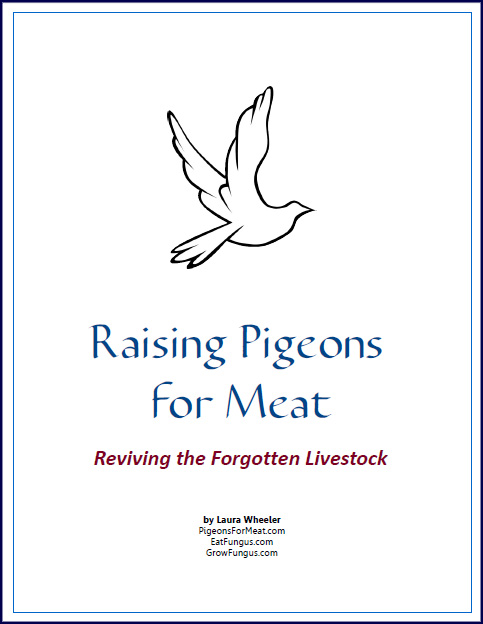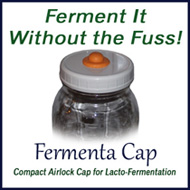Ducks
Muscovy Duck
Odd looking critters, the Muscovy duck still rates at the top of my list for production of duck meat on a small farm, or in an area where neighbors are close.
They have red caruncling on their heads, around their eyes and down to where their bills attach to their heads. Hotter climates make them have more of that, and they get more with age. Males have more than females. Exhibition breeders seem to think that more of this is better - even to the point of obscuring vision and looking really ridiculous.
But...
The Muscovy is not a true duck - it is closer to a goose actually, though it looks so much like a duck that it is classed as a duck, though not genetically compatible. It has a different number of genes, so when you breed them with a duck, it results in a hybrid that is sterile. This process is often used to produce fattened ducks for making pate.
They are quiet ducks, rarely making noises that can be heard from more than a few feet away. They will quack when distressed, but it is still not very loud. The drakes make a hissing quack when riled up - and the crest on their head rises up in a trendy looking floof.
Drakes are heavier than the ducks. Often close to twice the weight. They can be somewhat bullyish with other male ducks - not combative necessarily, but very insistant with the ladies, and not willing to be disrupted. Sometimes the males and females will form pair bonds, but the males can also be willing to mate with anything that doesn't stop them outright. They can rush a person flapping their wings, if they get really annoyed, but we've never had them do that, and if they do, they are typically not dangerous in the way an angry turkey or rooster is, and they don't pinch like geese do.
They will fly until they become very heavy, and they love to roost in trees if you do not clip wings. They are slow walkers due to their fairly horizontal shape. They are smart, and if there is an escape route out of a pen, they will find it and use it - they can flap and climb fences if they are not very high, having fairly useful claws on the ends of their webbed feet.
Muscovies will do fine with a dishpan of water to wash their bills when they eat, but they do like having a pool to take a dip in. They have less oil on their feathers than other ducks, so they don't spend as much time in the water, and they prefer shelter when it rains - they'll play in it for a while, but in a heavy sustained deluge, their feathers will gradually sog, and they end up looking wet through, and pathetically miserable. Once the rain quits, they will shake out, and preen, and recover, but being in cold rains for long would not be healthy for them, they are not built to withstand it like other ducks and geese.
Now, why do we love them? For one thing, they have a sense of humor, and they are very fun ducks to own. They train easily, and you can herd them if you have a herding pole to extend your reach to guide them (takes a couple of people if they are going an unfamiliar direction, but once they know the way, they go with one person). If you rush them, they may bolt a bit in panic, but if they do they are slow enough that you can usually catch up and turn them around.
They forage like nobody's business, and insects are like candy to them. When we bought our first Muscovies, our back yard was FULL of grasshoppers. They had mowed everything tender down to nothing, and when you walked across the yard they fountained up ahead of your footsteps. Three days after we brought the ducks home, there was not a hopper left in that yard. The crops on the ducks just about dragged the ground, but the insects were gone! We took them two weeks later to clear out my mother's yard, and they spent a happy afternoon gobbling grasshoppers, and then we herded them back home. Those ducks also cleared a lot of weeds from our lot over the next few months - what the grasshoppers had distained, the ducks relished.
Muscovies produce the BEST meat. The leg and wing meat can be a bit gamey tasting, but the breast meat is not - it tastes like marinated steak. One good sized male Muscovy will produce enough breast meat to feed a good sized family. If you don't care for the wings and legs so much, they make good soup (where the less desirable flavors are easily concealed with normal seasoning), or they can keep your cats and dogs well fed with the parts you like less.
While Muscovy eggs are not the most tasty (they can have a bit of an odd aftertaste, or if you feed them certain foods, it can be stronger), they are prolific layers. They are seasonal layers, laying only in warm weather since they are a semi-tropical duck. They can brood between 1 and 3 clutches of eggs per year, depending on temps.
They'll brood anything that might possibly be an egg. Including things we would not think were egg-like. One of ours gathered acorns into her nest to sit. To her disappointment, they did not hatch. Their broodiness means they will hatch anything that you put under them though - and they make great broodies for all kinds of waterfowl, as long as you can persuade them to keep their nests out of the sun if you live in the south (one egg we brought in was already partially cooked from sitting in the sun in an exposed nest). They are not the best broodies for chicks, since ducks introduce their young to water, and that doesn't work out so well for the chicks.
Their broodiness combined with their excellent egg production means that they can be very prolific producers, multiplying rapidly, and keeping you in a good supply of excellent meat. Since they are also a great homestead duck, and fairly popular with home farms, they are a reasonable potential income stream for the sale of juvenile and adult livestock and breeding stock. Their eggs do not hatch so well in an incubator, and Muscovy ducklings don't ship or thrive as well when removed from the mother or transported (they are not quite as durable when young, as chicks are).
- Type - meat
- Size - Heavy
- Production Capacity - good seasonal layers who reproduce very well
- Special Features - Muscovies do not quack, and are not a true duck.
- Best for Farms - where excellent red meat is appreciated, and where there is a use for the rest of the bird, the Muscovy cannot be beat. Great for brooding their own young or the young of other waterfowl also.
- Eggs, Milk, Meat Features - eggs are edible but sometimes not the best flavored, breast meat is unsurpassed in excellence
- Other Products - not applicable
- Historic or Contemporary Significance - traditionally used to produce Muscovy - Pekin crosses for lavage feeding, to produce pate.
- Housing and Space Requirement - Muscovies are a large bird and require adequate nesting space, and do best with good forage range. They can be stacked with other poultry, but males will not do well with male geese.
- Regional Adaptations - Semi-tropical duck, but they adapt well to cold weather (they did well in Wyoming).
- Feed Requirement - Muscovies love forage. They are very flexible about what they eat though. Feeding them a diet high in fish refuse or small oily fish will result in eggs or meat that does not taste quite as good (some fish in their diet is good, a lot overpowers). They do need increased animal fats, which can be accomplished with bugs, redworms, mealworms, or fish, or anything else that you eat that you have available.
- Other Considerations - Muscovies are considered an invasive species in a few southern areas, where you may have legal issues with owning them. Check with your state and town before you invest.
A NOTE ABOUT DUCKS:
Other than the Pekin, most ducks are struggling to maintain sufficient numbers to keep the breed thriving. Ducks have fallen out of favor in recent years due to analysis of feed consumption to meat production statistics.
Ducks require more feed to produce a pound of meat than chickens do, and since farmers have adopted a consumer attitude about animal feed, every pound of feed translates into a dollar cost - something that was not the case when animals foraged more for themselves, and farmers could feed all poultry the same, and the animals themselves would make up the difference by their own efforts.
Many small farmers now fail to realize the strength of the duck in the barnyard. Ducks are hardy, many are very prolific, and they forage like nobody's business when given something to forage ON - they'll eat grass, weeds, bugs, grubs, and some will even go after small snakes and rodents, and they'll forage on anything in the water.
Ducks are cautious and suspicious of what is not familiar, but if given the opportunity and encouragement to forage (refrain from overfeeding, so they have a reason to forage and try new things), they will be avidly hunting their own food within a few days of being put out on range. A few ducks in your yard or pastures can reduce fly and mosquito populations to an astonishing degree. They are also great to rotate through pastures to remove parasites for cattle and sheep, since those parasites do not harm ducks, and they'll eat them as quickly as they'll eat bugs.
We love ducks, in part for their ability to be trained and the ability to herd them. Ducks cluster together any time there is a disturbance, so they herd easily if you have a couple of people, and herding poles to extend your reach as you guide them. This makes it easy to move them from area to area. They also train easily, by scattering a little scratch feed where you want them to go out in the morning, and herding them back to a bit of feed in the evening in a pen or duck house. Three days of that, and they'll be waiting for you to let them out in the morning, and to let them in at night!
Good home raised duck meat is excellent, and the butchering scraps from them are helpful for feeding dogs, cats, and pigs. They have especially good livers, and duck fat is a useful fat to have on hand.
Most ducks require only a kiddie pool for water, and can make do with a dishpan of water - they require enough to wet their bills. Some prefer to mate on water, so they'll be more productive if they have sufficient water to swim. If provided with a pond that is not infested with snapping turtles or other water predators, ducks can also get a lot of their food from a pond that has been sown with duckweed, and some fish and freshwater shrimp.
Predation is more of an issue with ducks than with some other poultry because they do not defend themselves well against predators, and the ability to fly has been bred out of most. Putting them on pasture with other poultry may be helpful in reducing predation, and if it is a major problem in your area, choose ducks that can still fly, or which have dark broken colors that help to camouflage them.
Duck breeds have some of the same issues with productivity and loss of utility traits, in part because so many breeds have been corrupted by being relegated to show birds. A few of them have been bred to obscene proportions in the quest for trophies from judges who have a distorted sense of what is worthy of praise. Rouens and Aylesbury, specifically, have been bred with disproportionately large keels so that they have trouble breeding naturally, but some older bloodlines still exist, and these breeds are in need of restoration, and other breeds are in need of utility use and breeding in order to keep them from meeting the same fate.
Ducks natively have a diet very high in meat proteins, a thing which most people do not realize. In the wild, they forage on all kinds of small animal life, in addition to greens, grains and seeds, fruits, vegetables, and aquatic plants and animals. Ducks truly ARE omnivores, and if you are having issues with fertility or health, increasing their access to natural forms of animal protein and fat is a primary method of improving both.
When you work WITH the strengths of the duck, instead of trying to turn him into a production line chicken, he produces excellent meat, terrific eggs, and does so with surprisingly little input from you!
Duck eggs are great for baking, and range in size from small chicken egg size, up to extra large and bigger. The egg whites are clearer, and have more, oh, I don't know what it is called, but more elasticity, I guess. So they whip up stiffer, and hold cakes and muffins higher. They boil up a little rubberier than chicken eggs.
Rare duck breeds listed here are generally available from Dave Holderread, a Conservation Breeder who produces good quality stock. It is not cheap, but it is bred to retain utility traits, and to APA standards. He is a consciencious breeder who is trusted throughout the US to produce high quality stock.
 Click to Download Your Free Heritage Pickling and Culturing e-Book Now!
Click to Download Your Free Heritage Pickling and Culturing e-Book Now!
Instant Download, NO Registration Required!






